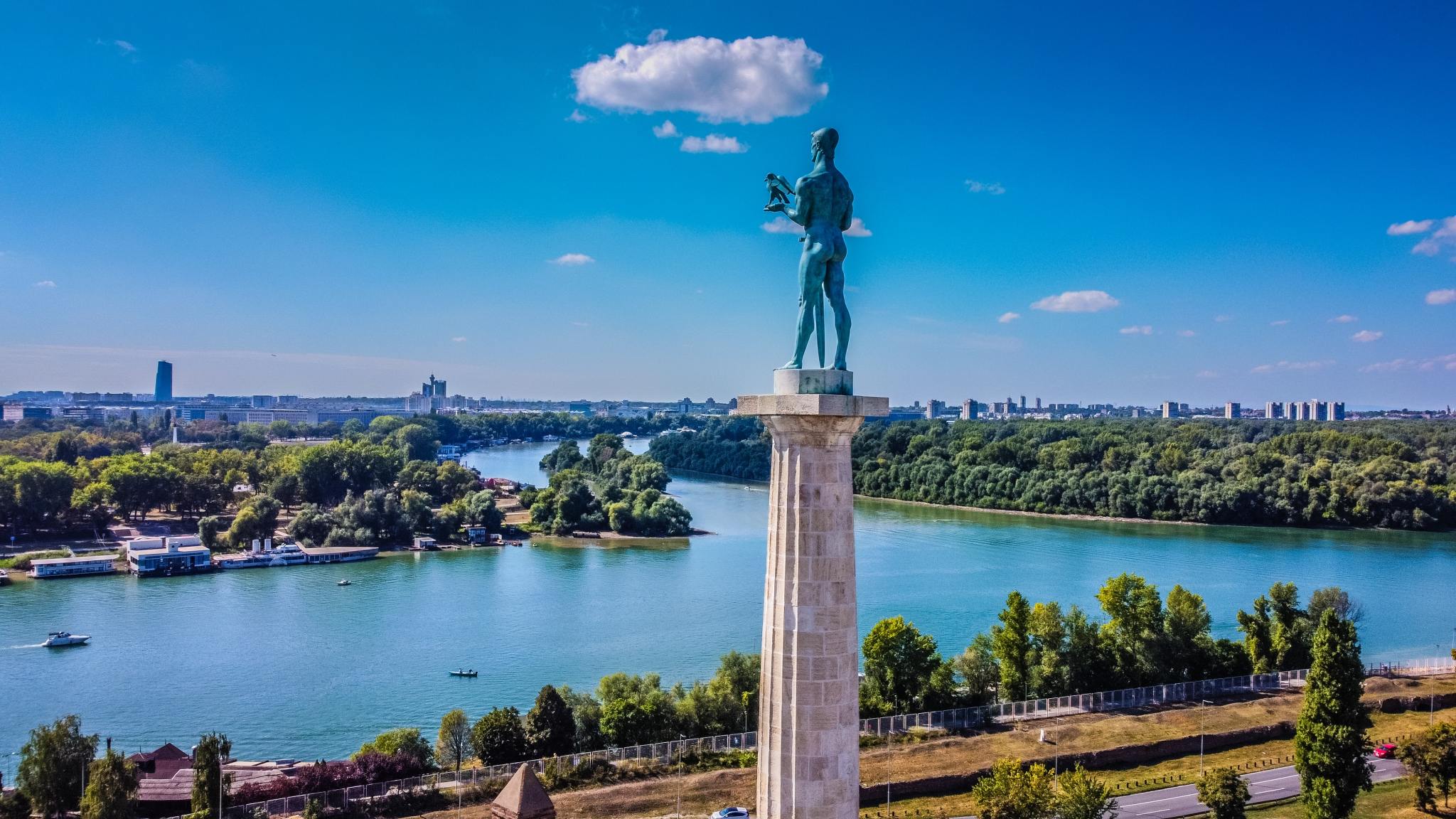Environmental Protection: A Chance for the Serbian Democracy?

Environmental hazards may have a crucial impact on democratic transition in the Western Balkans. This is particularly true in Serbia, where months ahead of the April 3 parliamentary and presidential elections, major protests broke out against environmental issues.
At the end of 2021, a campaign against the negative environmental impacts of British-Australian mining company Rio Tinto’s plans to open Europe’s largest lithium mine mobilized tens of thousands of citizens across the country. Demonstrators demanded the repeal of legislation that they believed had been shaped to suit Rio Tinto’s needs and sought the revocation of the company’s permits. Demonstrators assembled every weekend for almost two months. While anti-government demonstrations aren’t new in Serbia (read previous Beacon Project report), this may be the first time the decade-long rule of the Serbian Progressive Party is seriously challenged.
After masked men violently attacked the protesters, escalating the situation, President Aleksandar Vučić agreed to withdraw the controversial laws and annul all Rio Tinto permits. However, smaller demonstrations with an expanded list of demands continued after the original requests were met. The demonstrators’ apparent successes may encourage further activism in other topics related to strengthening democracy. In the experience of Beacon Project’s local partners, the public, especially the middle-aged, is generally passive and uninterested in the country’s political situation or engaging in any kind of political activism.1 The environmental protests have provided activists an opportunity to link participation in public life with everyday concerns that appeal to the broader public.
To find the main triggers of the protests, the International Republican Institute’s (IRI) Beacon Project monitored coverage of the protests in Serbian online media and Facebook. The author of this text reviewed 859 articles and Facebook posts2 to understand how online and social media covered the protests. While environmental impacts were expected to be the main driver of media discussions, rule of law and political stability were the most common issues mentioned. Surprisingly, environmental pollution appeared as a main topic in 31% of monitored articles and posts, while political stability prevailed in 62%, followed by rule of law at 41% (For detailed results visit the interactive data dashboard). Although the environmental threat was a topic that inspired the crowds, these events seemed to open the door for discussions about more complex topics.3
After years of disappointment from mixed results, Serbia’s general public is regaining its trust in political activism. Small civic groups’ activism on environmental issues seemed to increase the space for political discussion controlled by civil society, and Beacon Project monitoring suggests that even complex legal issues such as property rights have the potential to mobilize the public. This development of stakeholders promoting bottom-up democracy could strengthen the rule of law in the country.
1 According to findings on slide 81 of a 2020 IRI Western Balkans regional poll, 45% of Serbians were “somewhat disinterested” or “very disinterested” in political news and information. In CeSID‘s 2017 opinion poll report (page 13) when asked about the future of their country, only 48% provided positive answer, yet only 7% of respondents expressed readiness to be part of a change. In contrast, according to 2021 Eurobarometer survey “a majority of Europeans (61%) state they are personally involved in what is going on in society, while 58% say they follow what is going on in EU politics”.
2 Media monitoring tool Pulsar was used to apply a keyword filter on Serbian online media and Facebook content published between November and December 2021. After application of the filter ((protest OR protesti OR blokada OR Blokade) AND (Vucic OR Vucica OR Vucicu OR Vucicevi OR “Rio Tinto” OR “Rio Tintu” OR “Rio Tinta” OR litijum OR jadar OR jadra OR litijuma)) OR “Rio Tinto” the author manually reviewed 1715 results. A total of 859 results were tagged as relevant for the monitored topic.
3 To put this into perspective, according to IRI’s 2020 opinion poll survey (page 7), everyday life issues like unemployment and costs of living (rather than issues like the law making system) were perceived as the most important problem the country was facing.
Top